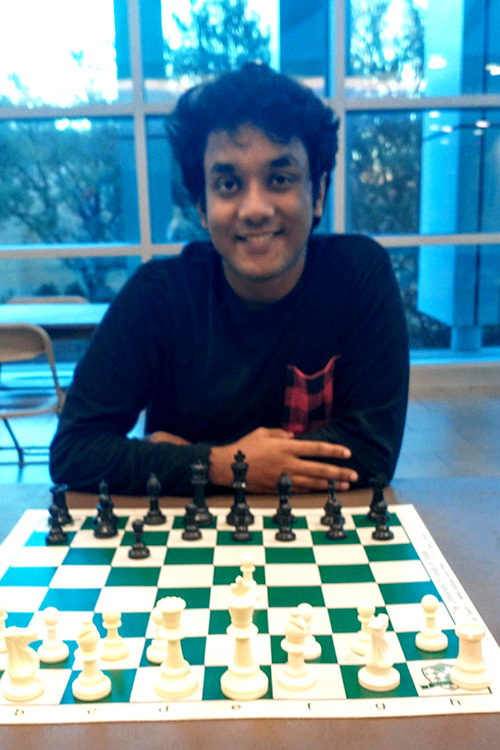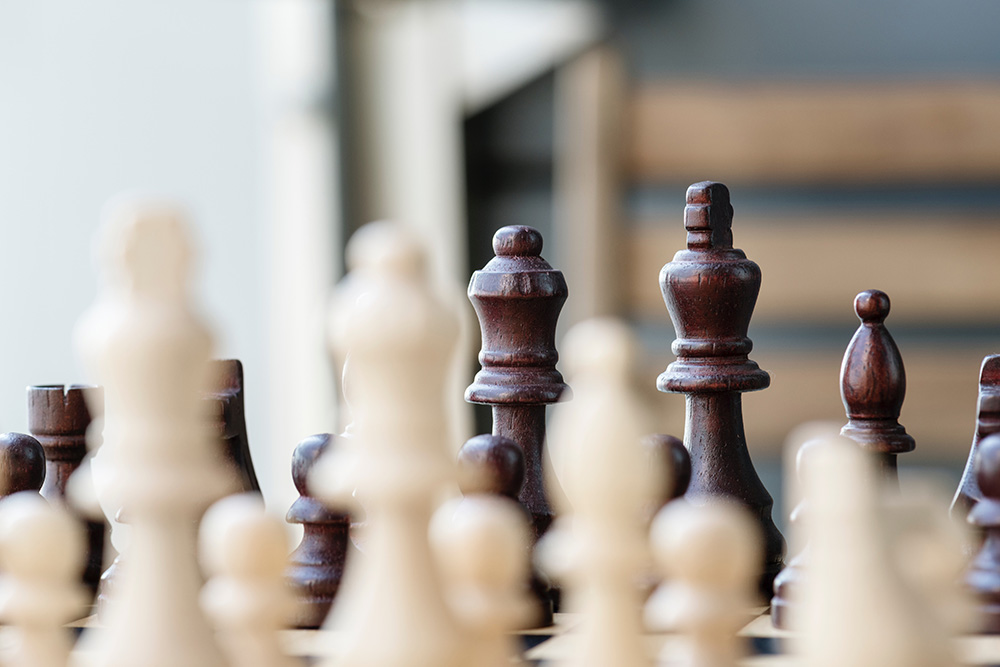
The University of Texas at Dallas chess team recently collaborated with members of the University’s chess club to collect a win at a prestigious international tournament. The victory comes as the chess team continues to prepare for next month’s President’s Cup collegiate chess tournament.
The Kasparov Chess Foundation University Cup is an international collegiate tournament that featured nearly 200 teams from five continents this year.
The tournament featured players at various skill levels and ratings. Chess players are assigned a numerical rating based on their play against other rated players. The higher the number, the better the player. World championship contenders may have ratings of 2600 or more. Grandmasters and International Masters, such as those on the UT Dallas chess team, are typically rated from 2400 to 2600.
For the Kasparov Cup event, the average rating of each four-member team could not exceed 2400.
“The second that the coach gave the opportunity for some club members to play in the tournament, they grabbed it. They definitely wanted to represent UT Dallas in a big event like the Kasparov Cup.”
Nikhilesh Prabhakar, events coordinator for the UT Dallas chess club
Julio Catalino Sadorra BS’13, UT Dallas chess team coach, said the key to the team’s success at the tournament was the partnership with members of the University’s chess club, a student organization that provides hobbyist players — with lower chess ratings — the opportunity to play recreational chess in a social environment.
“With the structure of this tournament, our teams had to include players with various ratings,” Sadorra said. “Our success would not have come without the participation of the chess club members.”
The competing teams were divided by rating averages, requiring Sadorra to select players carefully for each team to have the highest ratings possible in each division while positioning each player to have an opportunity to win. UT Dallas was represented in each of the four ratings categories: 2200-2400, 2000-2199, 1800-1999 and 1600-1799.
In another twist, the virtual tournament used a “rapid” time control, where each player had 10 minutes to play the entire game. The UT Dallas chess team members proved themselves adept at speed play after their performances in the national Rapid and Blitz Championships last year.

The UT Dallas B team won the 2000-2199 division, which brought with it an opportunity to participate in a training session with Garry Kasparov, the Russian Grandmaster and former world champion. The UT Dallas A team, in the 2200-2400 division, lost a playoff match to a team from UT Rio Grande Valley and placed second.
Nikhilesh Prabhakar, a graduate student in computer science and the chess club’s events coordinator, said it was a thrill for the club members to have such an opportunity.
“The second that the coach gave the opportunity for some club members to play in the tournament, they grabbed it,” he said. “They definitely wanted to represent UT Dallas in a big event like the Kasparov Cup.”
The chess club meets Friday afternoons for recreational play and to learn from the Grandmasters and International Masters who are members of the chess team.
“You usually only get such teaching in private sessions,” Prabhakar said. “It is exhilarating for us to hear from the talented players who are part of our chess team.”
Sadorra said placing well in tournaments such as the Kasparov Cup helps the chess team prepare for the upcoming President’s Cup, which is collegiate chess’s most important tournament. Considered the “Final Four of College Chess,” the President’s Cup is scheduled for April 2-3 in Lubbock, Texas.
“We will be up against the strongest collegiate teams in the nation,” he said. “These wins are helpful in giving us momentum and a hunger to keep the winning going.”
